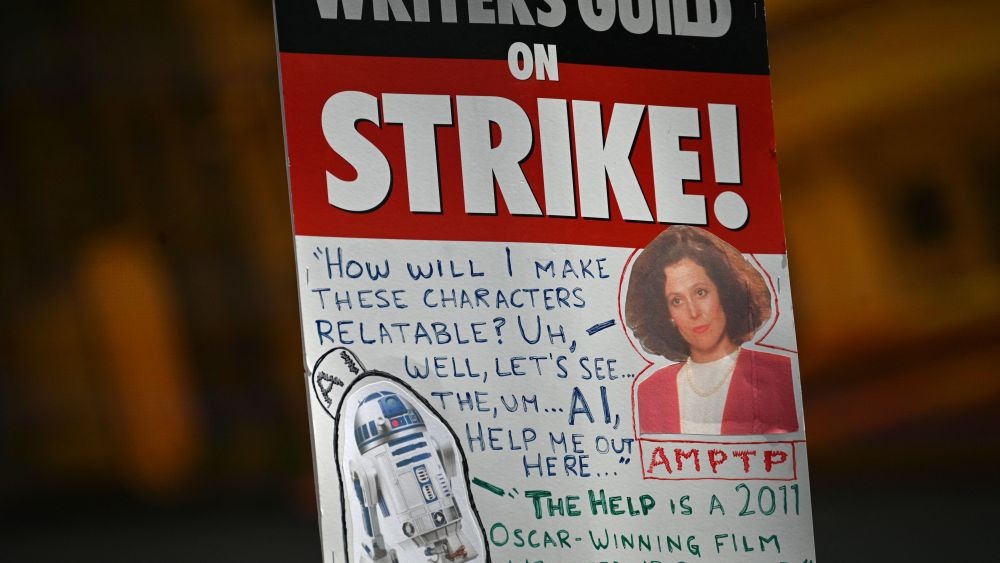In a pivotal moment for the entertainment industry, four prominent Hollywood CEOs returned to the bargaining table for a second consecutive day of negotiations with the Writers Guild of America (WGA) on Thursday. As the strike enters its 143rd day, stakeholders across the board are eagerly anticipating any signs of progress that could lead to a breakthrough deal.
- ‘Totally Killer’ Review: Kiernan Shipka Is a Gen-Z Scream Queen in Time-Traveling Slasher
- Gerard Depardieu, Indicted on Rape, Sexual Assault Charges, Pens Open Letter: ‘I’m Neither a Rapist, Nor a Predator’
- ‘Sound of Freedom’ to Get Digital Release in November
- Kate Winslet Bares It All for Another Trip to the Oscars With Her Passion Project ‘Lee’ Following Its TIFF Premiere
- Will ‘Oppenheimer’ Hit $1 Billion? Inside Christopher Nolan’s Historic Box Office Run
As of shortly after 6 p.m. local time, the CEOs continued their marathon bargaining session in Sherman Oaks, California, leaving the industry on the edge of its seat in anticipation of a resolution.
The CEOs at the center of these critical talks are Bob Iger of Disney, David Zaslav of Warner Bros. Discovery, Donna Langley of NBCUniversal, and Ted Sarandos of Netflix. Their presence at the negotiating table underscores the gravity of the situation as both sides grapple with lingering challenges.
see more : Errol Morris on John le Carre, ‘The Pigeon Tunnel’ and Why the Doc Took ‘Forever’ to Make
Sources close to the negotiations reported that there has been notable progress in various areas of contention. However, significant issues still loom large on the horizon. It remains uncertain whether the CEOs will reconvene for a third day of talks on Friday, but insiders stress the mutual commitment to capitalize on any momentum and secure a favorable deal for all parties involved.
During the ongoing discussions, the studios put forth proposals across multiple domains, hoping to break the current deadlock. Yet, it remains unclear whether the Writers Guild of America will deem the latest offers and modifications from the Alliance of Motion Picture and Television Producers (AMPTP) sufficient to meet the demands of the writers.
One notable point of contention revolves around residual payments. The AMPTP has introduced a success-based residual model, structured as a bonus for streaming shows that achieve specific audience thresholds. In contrast, the WGA has advocated for a viewership-based residual system, calling for incremental increases for every 2.5 million views, with a “view” defined as any instance where someone watches at least half of the program.
Another significant issue pertains to the WGA’s demand for minimum staff sizes on TV shows, with the requirement scaling based on the number of episodes in a season. The AMPTP has countered this proposition, asserting that staffing decisions should be at the discretion of the showrunner rather than adhering to a one-size-fits-all formula. While some movement may have occurred in the studio alliance’s offer, a resolution is yet to be reached.
see more : Tom Hanks Warns Fans About ‘AI Version of Me’ Promoting Dental Plan: ‘I Have Nothing to Do With It’
In an intriguing turn of events, discussions also broached the topic of artificial intelligence (AI). The AMPTP has indicated that progress has been made towards an agreement that would allow writers to utilize AI without affecting their compensation or recognition. However, the WGA remains steadfast in its insistence that AI systems should not be permitted to train on writers’ scripts.
The potential resolution of this AI-related issue could have ripple effects, particularly concerning the Screen Actors Guild-American Federation of Television and Radio Artists (SAG-AFTRA). SAG-AFTRA shares deep concerns about AI’s use to replicate actors’ likenesses and has expressed alarm over AI training practices.
While optimism has swelled in some quarters, with speculations of a tentative agreement by Thursday, the WGA has tempered expectations. Some WGA leaders have taken to Twitter, suggesting that rumors of an imminent deal are intended to raise hopes and, if rejected, paint the WGA as unreasonable.
The WGA’s work stoppage commenced on May 2, while SAG-AFTRA has been on strike since July 14. The outcome of these high-stakes negotiations holds the potential to reshape the entertainment industry and determine the future of content creation.
Source: https://dominioncinemas.net
Category: Film










